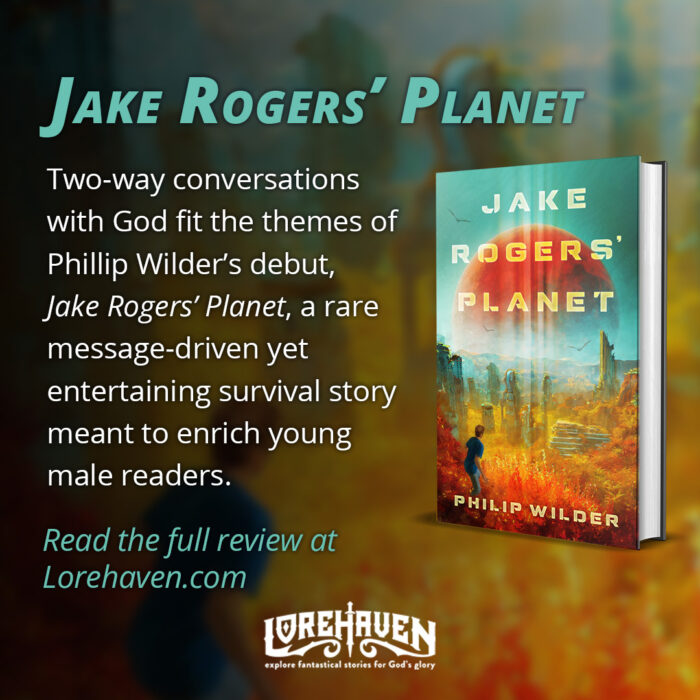Great Books Were Not Meant to Be Read Alone
For adult Christian fantasy novel fans, reading can feel like a lonely pursuit.
Back in high school, several church friends loved joining me to explore the latest trending fantasy and sci-fi novels. We had a blast reading and discussing works like Cornelia Funke’s Ink Trilogy, Garth Nix’s Keys to the Kingdom, Christopher Paolini’s Inheritance Cycle series, Brandon Mull’s Fablehaven, and many other works. These books gave me joy, and not just through the thrills of reading them. I found joy by discussing their stories with others and trying to predict what came next.
Flash forward to adult life.
Suddenly that sort of community is harder to find—especially in Christian circles.
Maybe you’ve grown used to reading as a lonely experience. After all, unless you’re reading books aloud with others, the act itself—sitting down with a book—takes little effort. But what if God never designed reading as a solitary task?
A brief history of humans reading literature together
Across God’s drama of humanity, people have read books in community.
Most works of literature started as oral tradition, including history and fiction. Their authors originally spoke these narratives to communities—Homer’s Odyssey, classical plays, The Epic of Gilgamesh, or even portions of the Old Testament.
For thousands of years, stories spread this way, not to solitary readers but to listening audiences. Even after people embraced writing, scholars debate the rarity of silent reading in the ancient world. Unlike modern practices, most people chose to read out loud and in groups, retaining that sense of community from the days of ancient bards and poets. Some historians (like Alberto Manguel and Paul Saenger) say this practice of reading aloud may have continued into the late Medieval Ages.
In the 1600s and 1700s, readers formed the literary culture of the European coffee houses during the time of famous authors like Jonathan Swift and Alexander Pope. By then more readers may have practiced silent reading. But people kept up the communal discussions, this time in the coffee houses.
Whether people read silently or aloud, our reading habits have deep historical roots in community traditions. This impacts how we experience the act of reading.
How reading together shapes our view of stories
If we read books in community, read them aloud, or discuss them aloud, we get something new from the experience: our books become less like destinations and more like launch sites. In fiction or nonfiction, such discussions will raise questions of criticism and application. Should this character have made this decision? Was this plot turn realistic? And what was that odd unexplained event in the middle?
In high school, I experienced these long book discussions with friends in book clubs and after-church conversations. After college, I taught high school English for four years and saw similar great discussions in a very different environment. My classes helped teach me that books best serve as conversation starters than propaganda tools. In fact, when we read and discuss works of fiction in Christian community, we can all learn not to fear stories with anti-biblical worldviews. Reading together, we find these stories getting a lot richer, and their real-life applications much clearer.
What we lose when we read without community
When we read in isolation, without community, we confront hidden costs.
First, we can weaken our potential to think deeply about books. We all know the joys of discussing books with others and learning new truths about these stories. Other readers often help us better understand the story.
Second, we can lose our ability to think broadly about a book’s thematic questions. After all, most stories make some form of moral argument, either subtle or blatant. As thoughtful readers, we want to engage meaningfully and critically with such themes. Fellow readers can often share essential perspectives.
Finally, if we read books in isolation, we lose some of the book’s natural enjoyment. Recently I was visiting with friends who were also Brandon Sanderson readers, and I can’t describe the enjoyment of hashing out fan theories with them. The more fans you know to share the story, the greater enjoyment you experience. It’s almost like our universe was made by Someone who meant people to share joy.
Of course, this raises more questions. Because it’s easy to say that people ought to read books together. It’s harder to find ways of bringing this ideal to the real world.
How to find your reading community
What if you want to read books with other people, but struggle to find them?
After all, most of us who read in solitude don’t do this by choice. Instead, we lack friends who share our interests. You might try searching for such acquaintances or local book clubs to join, but those don’t always exist.
This means that if we value reading in communities, we must get creative.
That may require taking initiative. Perhaps you can start a book club yourself and gather interested readers. Or you can look for places where readers of your preferred genres gather locally and meet with them there.
You might also try looking in virtual communities. Over the last year, I’ve taken part in two different online book clubs. One of them had mixed results. The other has given me a wonderful opportunity to connect with fellow Christian fantasy fans and talk every week about the book we’re reading together.
The best book quests begin with quest parties
We may read books alone by default. But this need not be our destination. By creatively seeking ways to read in community, we can grow our experiences and insights about the world and find greater enjoyment in the communal reading life.
Reading need not be a lonely task, even for lesser-known genres like Christian-made fantasy. We only need value these books enough to start this quest together.
In fact—don’t tell anyone just yet—but ultimately, this is why our Lorehaven team is planning to launch a very different sort of “book club” of our own. We shall gather Christian readers to quest through the best Christian-made fantastical novels. Subscribe and watch Lorehaven.com for more revelations over the next months. After all, if you’re ready for the most epic reading quests, you’ll need a quest party.





































“we can all learn not to fear stories with anti-biblical worldviews” — why would I fear such things? I live in the midst of this garbage—increasingly as we approach the end of the Age. In truth, I usually feel like I was dunked into a fetid swamp of sin and filth. There’s nothing to fear there. But the absence, distortion, or perversion of truth is not good or pleasant. It used to be exciting and titillating, but it is no longer. It’s a problem we will all have to deal with—face to face with the King.
There’s nothing to fear. But show them for what they are, please. They have no power, except to corrupt. The Blood has washed me clean. But they are eliminated by the simple application of “think on these things” Phil 4:8
I am pleased that these anti-biblical worldviews will be eliminated in the near future when the True King shows up. Until then I’ll enjoy the power of His Kingdom in this sinful world. And yes, I write fiction.
Thank you for this post, Josiah! I am part of a writing group and we discuss the books we read at times too. Most recently we had a running thing about The Will of the many and it was good fun. As a writer, I also find it really inspiring to discuss fiction with other reader/writers! Seeing a story through someone else’s eyes is a kind of magic sometimes.
Thank you for the post! 😀